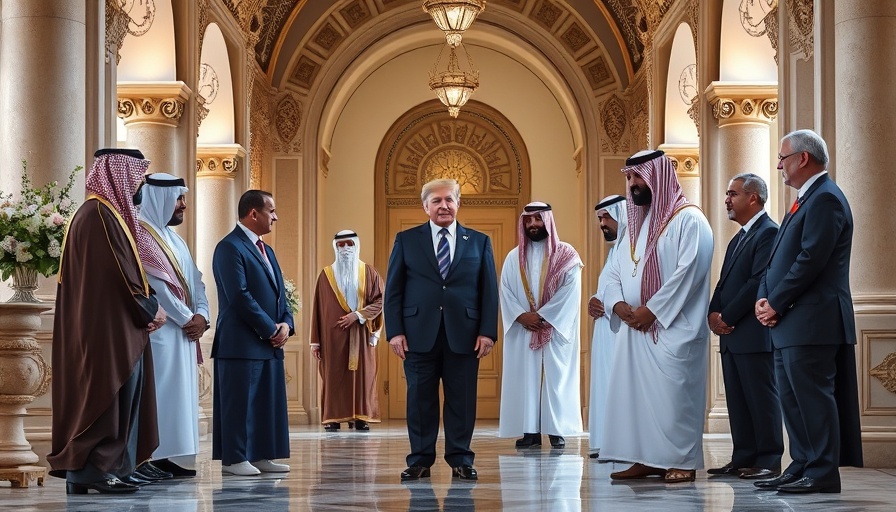
Trump's Diplomatic Shift: A Contradiction in Terms
As President Trump embarks on his first major foreign trip of a second term, he delivers a message that stands in stark contrast to his domestic agenda. While claiming to seek healing and collaboration, the rhetoric from his speeches suggests a balancing act between aggression at home and a call for unity abroad.
America's Foes: A Tenuous Path to Reconciliation
In recent statements, Trump has emphasized his belief in the potential for reconciliation, notably regarding Iran, a country he has accused of plotting against him. "I have never believed in having permanent enemies," he stated during his speech at the Saudi-U.S. Investment Forum. This willingness to overlook past grievances, including attempts on his life, paints a complex picture of U.S. diplomacy.
Sanctions on Syria: A Surprising Decision
Perhaps the most unexpected move came when Trump announced a potential lifting of sanctions on Syria. This decision offers a lifeline to a country battered by years of civil unrest and economic despair, raising questions about the implications of such a policy shift. Is this a genuine attempt to foster stability, or merely a strategic political maneuver?
Balancing Domestic and Foreign Interests
While Mr. Trump portrays an image of a peace-seeking statesman abroad, his actions at home tell a different story. His administration is embroiled in investigations aimed at political opponents, demonstrating a deeply entrenched vengefulness. This contradiction could undermine the credibility of his foreign policy efforts. Critics argue that without addressing the authoritarian tendencies at home, any foreign diplomacy would lack sincerity.
The Positional Dilemma: What This Means for the Middle East
For the Middle East, Trump's ambiguous position can lead to uncertainty. Countries may welcome the lifting of sanctions yet remain cautious of an unpredictable American president. His statements could either inspire new coalitions or repel potential allies wary of aligning with a fluctuating U.S. foreign policy.
Global Reactions: Responses from Middle Eastern Leaders
Diplomatic responses to Trump's visit have varied. Some leaders view this as an opportunity to establish stronger ties with the U.S., while others regard it with skepticism. Balancing America's interests while addressing their own complex regional challenges poses a significant burden for many Middle Eastern nations.
A Path Forward: The Importance of Consistent Diplomacy
The effectiveness of Trump's outreach hinges on the authenticity of his messages. While proclaiming peace and reconciliation, steadfast U.S. commitments and a coherent strategy are vital for establishing long-lasting partnerships. Without a united front, the dangers of mistrust and conflict will persist.
Conclusion: A Call for Reflection on Leadership
As American voters reflect on Trump's administration, they must consider the implications of his contrasting approaches both at home and abroad. Voters should demand clarity in how a president's policies affect not just the nation but the broader world stage. The outcome of this complex dynamic will shape foreign relations for years to come.
 Add Row
Add Row  Add
Add 




 Add Row
Add Row  Add
Add 

Write A Comment